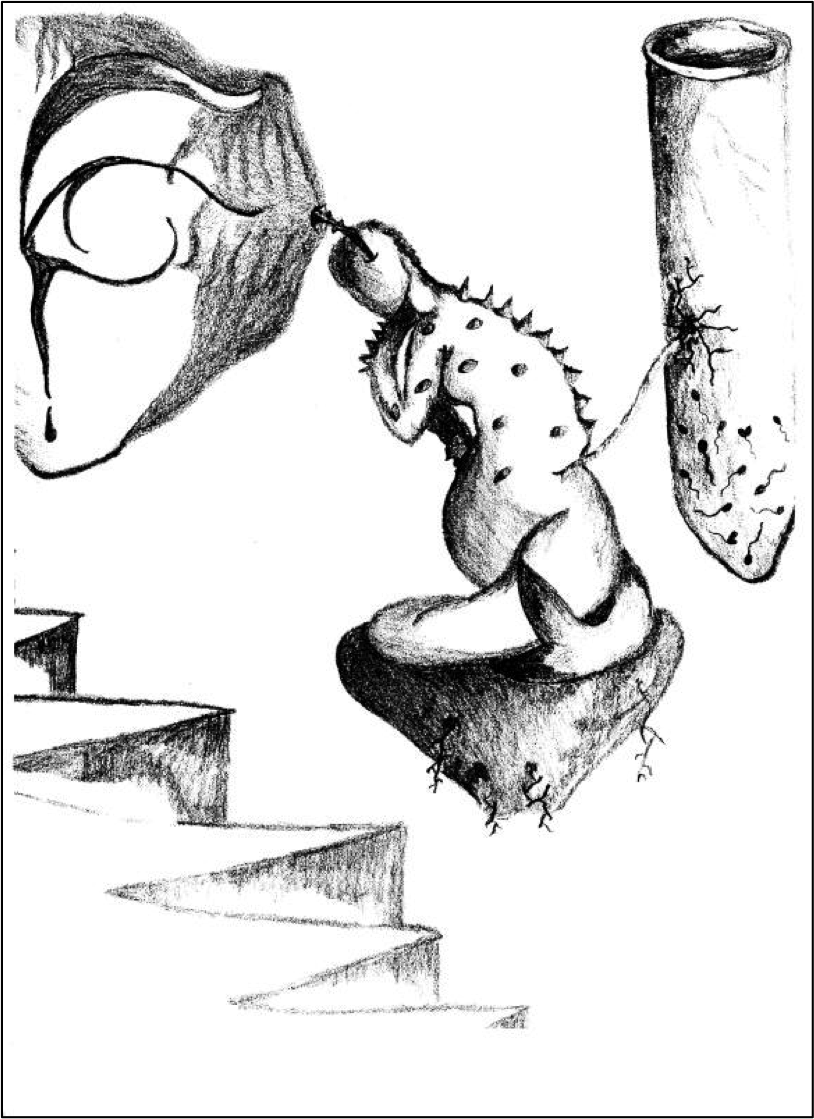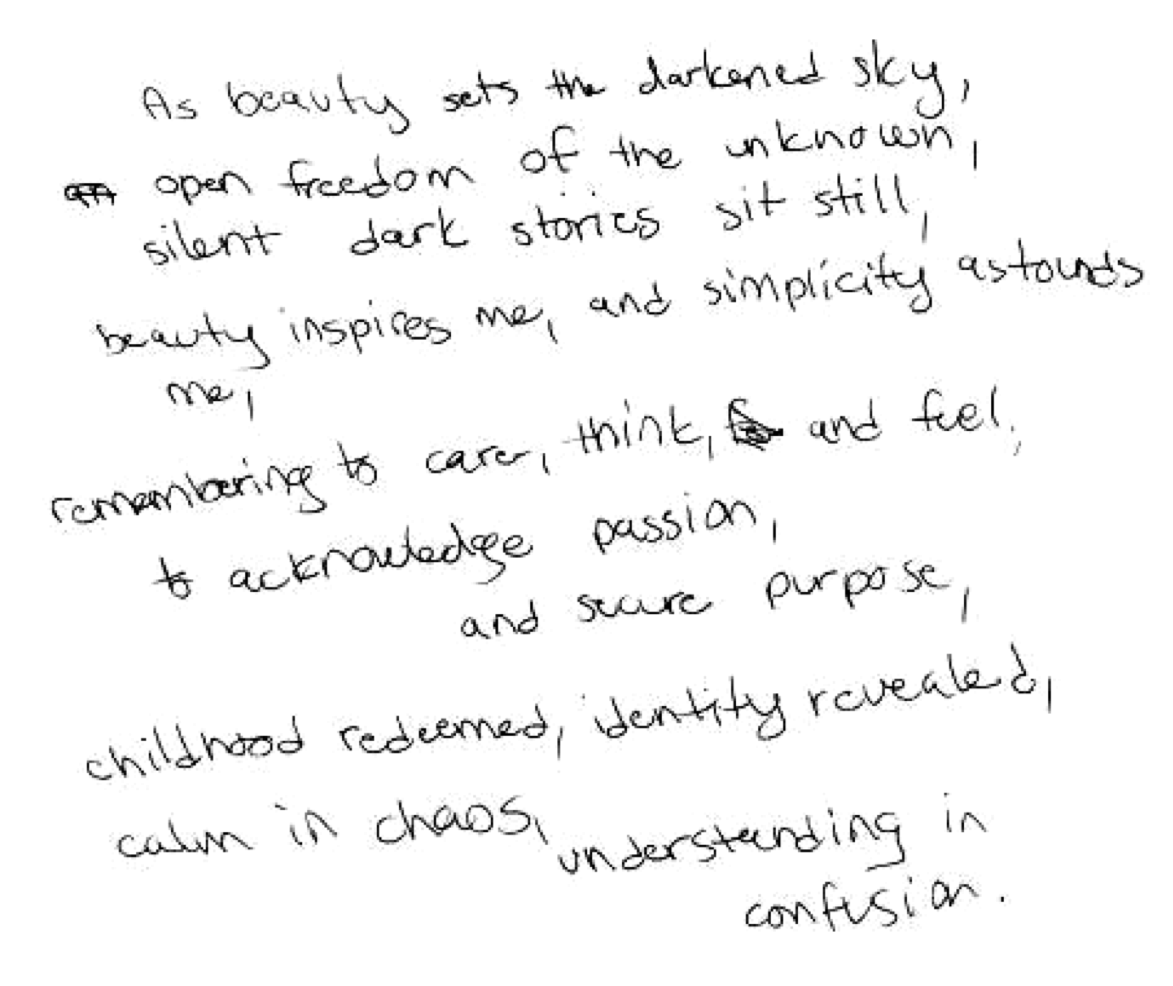It was in lower Manhattan nearly 15 years ago that a young woman experiencing “houselessness,” as she described it, gave me a copy of the piece of art that is below. She used it to tell me about her experience and wanted me to share it with others. It describes her disconnection from the world, her isolation, pain, and tough demeanor (spikes) she needs to project to survive. It shows the thorny connection to her mother, who was addicted to crack, suicidal and sex trade-involved, and who sex trafficked her. It shows a connection to a father who she never knew. She was angry, depressed, and traumatized. She was also going to high school despite being homeless.
Nearly half of homeless young people have severe mental health and addiction challenges and almost all are routinely experiencing serious psychological distress. Mental health challenges to varying degrees contribute to pathways onto the streets and difficulties exiting and are caused and compounded by homelessness. The routine exposure to violence, systemic marginalization and discrimination, and resource deprivation make homelessness inherently traumatizing. This is happening to upwards of 40,000 Canadian children and youth every year – with a disproportionate over-representation of Indigenous and LGBTQ2S young people.
The systems that are intended to prevent youth homelessness and help those who are homeless – be it with mental health supports or otherwise, are under-resourced and badly designed. Youth have great difficulty accessing timely and relevant supports – this problem is tragic (suicide and overdose are the two leading causes of death for homeless youth) and expensive with frequent cycling through emergency departments.
Strikingly, to date there has been very little guidance for service providers in the homeless youth sector on how to respond to mental health challenges including addictions. The academic literature is difficult to access and seldom details the approaches studied. Very little is available otherwise. In my 20 years working in this space, I have been asked countless times for suggestions about where guidance can be found on mental health and addictions approaches relevant to homeless youth and community provider contexts.
In response, my close colleagues (Slesnick, Frederick, Karabanow and Gaetz), and I have taken on the task of curating a book written to provide intervention guidance based upon the best available knowledge and evidence in the field. The focus is on mental health and addictions challenges for homeless and street involved youth. We sought out leading practitioners and intervention researchers internationally – asking them to write chapters of clear relevance to direct service providers in the community. It was to be practical and describe approaches that are readily implemented. We had a two stage review – by an internationally recognized academic and by leading practitioners in the field. It tackles topics such as crisis response and specific approaches like DBT skills. It addresses specific populations such as Indigenous, LGBTQ2S, and Black racialized youth. It addresses assessment and evaluation and trauma-informed care frameworks.
There are big strides forward happening in Canada to address the structural barriers and inequities that lead to and perpetuate youth homelessness. While this is happening, however, young people are suffering and dying on Canadian streets – with mental health and addictions challenges closely woven into these preventable losses. This needs to be addressed while we work to end youth homelessness. This book is a part of that effort – responding to the needs of providers working in the field. We will make this book as widely available as possible – both open access and for low cost in print – giving providers more effective tools to address mental health and addiction challenges. We hope that it helps to make a difference – helping young people like the woman that I described above – with more knowledgeable and skillful providers – helping her tap more fully into her already formidable strength and tenacity.
I’ll close with a poem that another youth gave me – a young man with a Benedryl addiction who spent his nights sleeping in unfinished homes at a construction site – scrambling out each day before dawn when the crews arrived.
Download Mental Health & Addiction Interventions for Youth Experiencing Homelessness: Practical Strategies for Front-line Providers for free at: homelesshub.ca/mentalhealthbook



